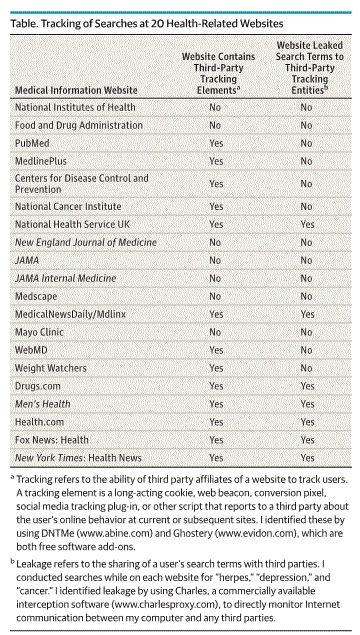Your Internet Health Searches Are Not Private
Your internet searches on medical topics as sensitive as ‘herpes’ or ‘cancer’ – can no longer be considered private. A researcher from University of Southern California has published a study that shows many popular online medical sites are sharing data about visitors to their sites – with 3rd parties.
Thirteen of the sites had at least one potentially worrisome tracker, according to the analysis performed by Dr. Marco Huesch, an assistant professor of health policy at the University of Southern California.
He also found evidence that health search terms he tried — herpes, cancer and depression — were shared by seven sites with outside companies.
—NPR Who’s Watching When You Look For Health Information Online?
by Scott Hensley | July 09, 2013
Tracking of Searches at 20 Medical Sites-JAMA Intern Med. 2013

A patient who searches on a “free” health-related Web site for information related to “herpes” should be able to assume that the inquiry is anonymous. If not anonymous, the information knowingly or unknowingly disclosed by the patient should not be divulged to others.
Unfortunately, neither assumption may be true. Anonymity is threatened by the visible Internet address of the patient’s computer or the often unique configuration of the patient’s Web browser. Confidentiality is threatened by the leakage of information to third parties through code on Web sites or implanted on patients’ computers.
— Marco D. Huesch, MBBS, PhD | JAMA Intern Med. 2013




